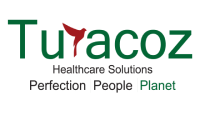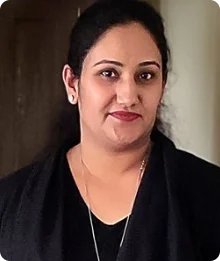Medical writing is an exciting and rapidly growing field that blends the expertise of healthcare professionals with the creativity of communicators. As the medical and pharmaceutical industries continue to expand globally, the demand for skilled medical writers is skyrocketing. For freshers entering this dynamic profession, medical writing offers a unique opportunity to combine scientific knowledge with strong writing skills to create impactful content that educates, informs, and influences healthcare professionals, patients, and the general public.
In this blog, we will explore why medical writing is an excellent career option, the essential skills required to succeed in this field, and how enrolling in a specialized course can provide a solid foundation for a successful career in medical writing.
The Growing Demand for Medical Writers
The healthcare industry is vast and multifaceted, encompassing pharmaceuticals, medical devices, diagnostics, health services, and more. As new drugs, therapies, and technologies are developed, there is an increasing need for clear and accurate communication between researchers, healthcare providers, regulatory authorities, and patients. Medical writers play a crucial role in this communication by producing a wide range of documents, including clinical trial reports, regulatory submissions, promotional content, scientific publications, and patient education materials.
The demand for medical writers has surged in recent years, driven by factors such as:
- Expanding Research and Development: As more pharmaceutical companies invest in research and development, there is a greater need for writers who can document clinical trials, draft regulatory submissions, and communicate scientific data effectively.
- Increasing Regulatory Requirements: Regulatory authorities such as the FDA and EMA require detailed documentation for the approval of new drugs and medical devices. Medical writers help ensure that these documents meet regulatory standards.
- Rising Importance of Healthcare Communication: Clear and accurate communication is essential for educating healthcare professionals and patients about new treatments, medical devices, and health practices. Medical writers are instrumental in crafting this communication.
- Emerging Digital Health Technologies: The rise of digital health, telemedicine, and artificial intelligence (AI) in healthcare has created new opportunities for medical writers to work on cutting-edge technologies and innovations.
Read More: Revolutionizing Medical Writing with AI and Automation
The Role of Medical Writers
Medical writers wear many hats and can work in various niches depending on their interests and expertise. Here are some of the common types of medical writers:
- Regulatory Writers: These writers focus on creating documents required by regulatory authorities for the approval of drugs, biologics, and medical devices. This includes clinical study reports, investigator brochures, and regulatory submission documents.
- Scientific Writers: These professionals specialize in writing research papers, review articles, and conference abstracts for publication in scientific journals. Their goal is to communicate complex scientific data clearly and concisely.
- Medico-Marketing Writers: In this role, medical writers produce promotional materials such as brochures, websites, and presentations aimed at healthcare professionals and patients. They must balance scientific accuracy with persuasive messaging.
- Patient Education Writers: These writers create materials that help patients understand their medical conditions, treatment options, and health management strategies. Their work is critical in promoting patient engagement and adherence to treatment plans.
- Health Communication Writers: These writers develop content for public health campaigns, awareness programs, and social media. They focus on making health information accessible and understandable to the general public.
Essential Skills for Medical Writers
While a background in life sciences or healthcare is often beneficial, it is not the only requirement for becoming a successful medical writer. Here are some key skills that are essential for a career in medical writing:
- Strong Writing Skills: Medical writers must be able to communicate complex scientific concepts clearly and concisely. They need to adapt their writing style to suit different audiences, from regulatory authorities to patients.
- Attention to Detail: Accuracy is paramount in medical writing. Even small errors in a document can have significant consequences, especially in regulatory submissions or scientific publications.
- Critical Thinking: Medical writers need to critically analyze scientific data and research findings to produce accurate and reliable content. They must also ensure their writing is evidence-based and supported by credible sources.
- Project Management: Medical writers often work on multiple projects simultaneously, each with its own deadlines and requirements. Strong organizational and time management skills are crucial for meeting deadlines and producing high-quality work.
- Collaboration and Communication: Medical writers frequently collaborate with researchers, clinicians, regulatory professionals, and other stakeholders. Effective communication and teamwork are essential for producing accurate and coherent documents.
The Importance of Specialized Medical Writing Courses
While some medical writers enter the field with a degree in life sciences or healthcare, specialized medical writing courses can provide a significant advantage, particularly for freshers and those transitioning from other fields. These courses offer structured learning, hands-on experience, and a comprehensive understanding of the different aspects of medical writing.
Here is why a specialized course can be the key to launching a successful career in medical writing:
- Comprehensive Knowledge: A well-structured course provides a solid foundation in medical writing, covering essential topics such as clinical research, regulatory writing, scientific publications services, and ethical considerations. It helps freshers gain a deep understanding of the healthcare industry and the specific requirements of different types of medical writing.
- Practical Experience: Many courses include practical assignments and projects that allow students to apply their knowledge in real-world scenarios. This hands-on experience is invaluable for developing the skills needed to produce high-quality medical writing.
- Understanding of Regulatory Requirements: One of the most challenging aspects of medical writing is navigating the complex regulatory landscape. Specialized courses provide detailed guidance on regulatory requirements, helping writers produce documents that meet the standards of agencies like the FDA, EMA, and other regulatory bodies.
- Introduction to AI in Medical Writing: The integration of AI in medical writing is a game-changer. AI tools can streamline the writing process, analyze large datasets, and even assist in regulatory submissions. A specialized course that explores the role of AI in medical writing can give freshers a competitive edge by equipping them with knowledge of cutting-edge technologies that are shaping the future of the field.
- Mentorship and Networking Opportunities: Many medical writing courses are taught by experienced professionals who have worked in the industry for years. Their insights and mentorship can provide valuable guidance as students navigate their careers. Additionally, these courses often offer networking opportunities, allowing students to connect with peers and industry experts.
- Portfolio Development: A course can help students build a portfolio of writing samples that demonstrate their skills and expertise. Having a strong portfolio is essential for securing job opportunities in medical writing.
- Career Support and Guidance: Many courses offer career support, including resume writing, interview preparation, and job placement assistance. This support can be especially helpful for freshers looking to break into the industry.
Conclusion
Medical writing is a rewarding and versatile career that offers opportunities across various domains, from regulatory writing to health communication. For freshers entering the field, a specialized medical writing course can provide the knowledge, skills, and confidence needed to succeed in this dynamic profession.
As the healthcare industry continues to evolve, the demand for skilled medical writers will only increase. By enrolling in a comprehensive medical writing course, freshers can position themselves at the forefront of this exciting field, equipped with the expertise and tools to make a meaningful impact on healthcare communication.






































